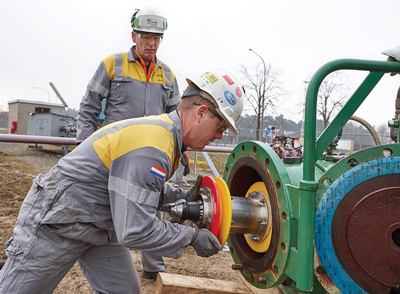

Pigging of pipelines whether it is for cleaning purposes or for defect identification/assessment is vital to ensure that the integrity and reliability of pipelines is effectively managed throughout its entire life cycle from design through to decommissioning.
Lessons learnt from previous failures emphasize that routine cleaning of pipelines at a reasonable frequency is vital to ensure the pipeline health and to avoid unlikely events of failure and subsequent hydrocarbon release.
The target audience are staff engaged in the design, construction, commissioning and operation of pipelines and associated facilities. This training course is suitable to a wide range of professionals and will greatly benefit:
Day One:
Day Two: How Routine Mechanical Cleaning & Intelligent Pigging can Influence the Pipeline Integrity Management System (PIMS)
Day Three: Intelligent Pigging
Day Four: Intelligent Pigging Techniques for Oil, Water & Gas Pipelines
Day Five: Pipelines Repair Techniques
CDGA attendance certificate will be issued to all attendees completing a minimum of 75% of the total course duration.
| Code | Date | Venue | Fees | Register |
|---|---|---|---|---|
| ME176-02 | 13-04-2026 | Dubai | USD 5450 | |
| ME176-03 | 20-07-2026 | London | USD 6950 | |
| ME176-04 | 12-10-2026 | Rome | USD 6950 |
Providing services with a high quality that are satisfying the requirements
Appling the specifications and legalizations to ensure the quality of service.
Best utilization of resources for continually improving the business activities.
CDGA keen to selects highly technical instructors based on professional field experience
Since CDGA was established, it considered a training partner for world class oil & gas institution
3012, Block 3, 30 Euro Business Park, Little Island, Co. Cork, T45 V220, Ireland
Mon to Fri 09:00 AM to 06:00 PM
Contact Us anytime!
Request Info